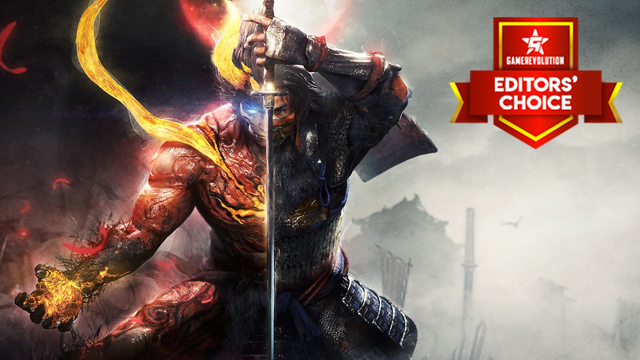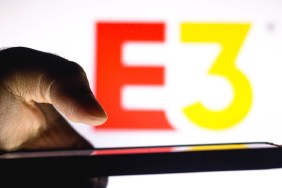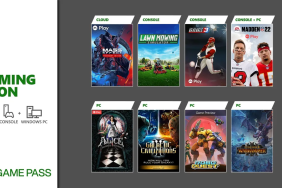The Nioh Collection review for PS5.
The new generation has already had its share of remasters and ports. Some are worthy, others have been a bit puzzling, and a couple fall under the “glorified ports” category. The Nioh Collection is yet another remastered bundle that’s ready to fall into at least one of those three categories. While there are some puzzling aspects, it’s mainly a worthy upgrade as it not only holds up incredibly well, but also contains a healthy helping of noticeable improvements.
A new set of shinier armor
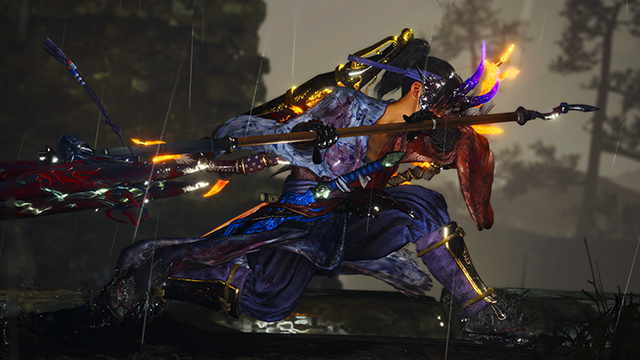
Only some of these improvements are visual. Both Nioh games were special in that they were able to run at 4K at 60 frames per second on the PS5 through backwards compatibility. This forward-thinking option gave the illusion that each game had already been at least partially remastered like some other PS4 games.
Flexibility like this makes the visual updates a little harder to spot, but they are there since each game looks cleaner (although this is dependent on which of the three display modes the player picks). However, the other PS5-specific features are far more noteworthy. Load times are so fast that there’s no real reason to have a tips screen anymore; the game should do a quick fade instead and skip the confirmation button press that pops up almost immediately. The PS5 cards system shows the quick loading off brilliantly as it gets the player straight from the console dashboard right into that chosen mission within just a dozen seconds. Dying over and over again is also less punishing as a result since players can get back into the action more quickly.
Existing players can get right back into their saves as well as this upgrade supports save transfers from the PS4 versions. It’s not automatic and users must boot up the PS4 versions first, but it’s flexible and a thoughtful addition for those still making their way through Nioh 2 and its trio of expansions. And, as an added bonus, almost all trophies earned on PS4 will pop again on the PS5 version, which is a thoughtful touch and yet another way it lets players continue their progress.
The Nioh Collection also takes good advantage of the PS5’s DualSense controller (but only on PS5 as PC version’s DualSense support is buggy and doesn’t support the adaptive triggers). Tension gradually builds in the trigger when pulling back a bow. Guns have a hard trigger-like stop. Each slash, grapple, and door kick shakes differently and appropriately matches the on-screen movement. It’s small but handled well, even if timing a vibrating pulse to the Ki Pulse would have been a great addition.
Razor-sharp fundamentals
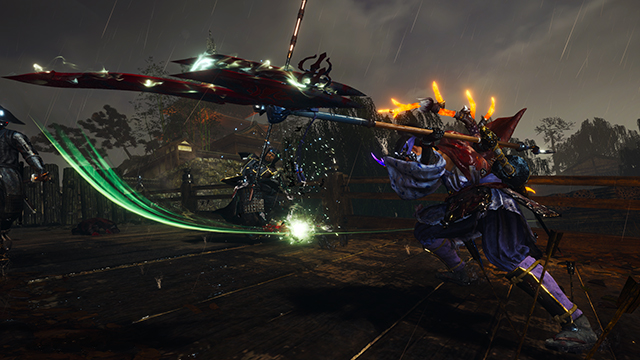
But despite the visual tweaks and upgraded performance, the gameplay is still the reason to play both Nioh games. Nioh 2 was just one of the best games of 2020 and, obviously, still holds up remarkably well, especially given the bevy of changes Team Ninja has patched in since its launch. Combat is brutal but never cheap because of the controls and each encounter, from the climactic bosses to the small grunts, is a nail-biting experience. It demands a lot of the player yet gives them the tools to overcome its many obstacles and yields a whole ton of satisfaction on the other side. And this holds true in the main game as well as its three fantastic expansions.
Juxtaposing such an incredible sequel against its predecessor is a risky proposition as it can easily poke holes in the earlier title, but the first Nioh still holds steady. Losing Burst Counters, Yokai attacks, and a few of the weapons does hurt and make the swordplay a smidge less varied, but it doesn’t lose the fundamental responsiveness and toughness that is so crucial to the Nioh experience. That foundation stands strong even though it was built in 2017.
A slightly rusty Irish lad
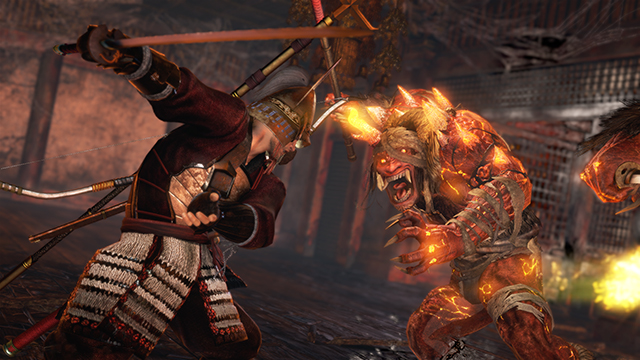
But Team Ninja didn’t fully modernize Nioh and bring it into 2021, aside from adding in a brand new and robust photo mode. Nioh does look distinctively worse than Nioh 2 because it is washed out in comparison. Nioh 2 took full advantage of HDR and had environments that popped with pretty pinks, sharp reds, and golden yellows. The first Nioh is more tame and less visually exciting. Putting it next to Nioh 2 simultaneously points out how Team Ninja addressed those criticisms in the sequel and didn’t spruce up the original in this remaster. Even the HUD and menus aren’t as bright or crisp. It’s sharp because of the resolution, but not as pretty because of the more muted color palette.
Nioh is also missing a few key enhancements that would have streamlined the experience. Players still need to manually go pick up their Guardian Spirit in a boss arena upon death; a tedious act that was stripped out of the sequel. The skill tree is still a mess and confusing to look at, something that the sequel also addressed. Nioh has aged well because of its gameplay even when held against its successor, but it would have been extra nice if Team Ninja actually added in the quality-of-life changes that came standard in Nioh 2. And unlike Nioh 2 Remastered, Nioh Remastered isn’t even free for previous owners, which makes the absence of these improvements even more peculiar.
The Nioh Collection Review | The final verdict
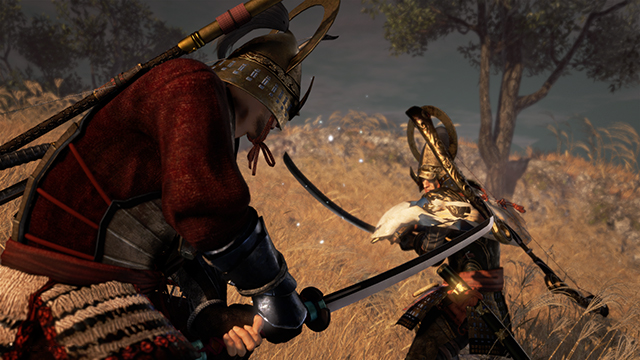
The Nioh Collection confidently slashes through these minor oversights because it is still a definitive duo of difficult classics that play, look, and feel better than ever before. Even though its sequel is easily the superior, more varied title, both are still genre-defining action RPGs that provide so many engaging encounters that crush players to a pulp as a means to make them work for their euphoric victories. Few games can master this balance and maintain it after dozens or hundreds of hours and this collection has two such titles, doubling the amount of pain while also simultaneously doubling the amount of satisfaction.
Game Revolution reviewed The Nioh Collection on PS5. Code provided by the publisher. The Nioh Collection is also on PC. A PS4 version is also available, but it is just the original untouched version of each game and piece of DLC.
-
Difficult and consistently rewarding action combat.
-
An absolute ton of replayable content that doesn’t get old and continually tests players.
-
Looks and runs incredibly well without sacrifices.
-
Blazing fast load times and solid DualSense support.
-
Old PS4 saves transfer to new PS5 versions (and vice versa) and pop previously earned trophies
-
Nioh Remastered isn’t free for owners of the PS4 version.
-
The first game hasn’t been streamlined or touched up as much.
